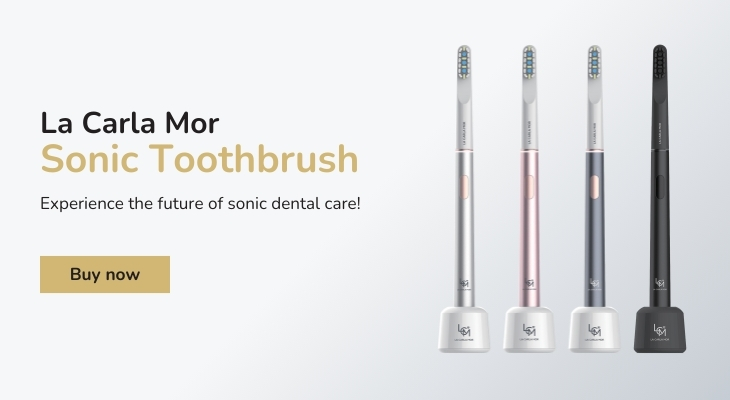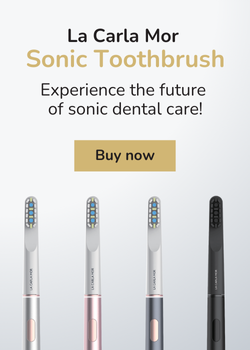Choosing the right toothbrush is crucial for maintaining good oral health. With so many options available, it can be challenging to decide which one best suits your needs. In this article, we will explore the different types of toothbrushes, their advantages and disadvantages, and how to choose the perfect one for your dental care routine. Whether you’re considering a manual toothbrush, an electric model, or the increasingly popular sonic toothbrush, this guide will help you make an informed decision.

Manual Toothbrushes: The Classic Choice
Manual toothbrushes have been a staple in oral hygiene for decades. They are a simple and cost-effective option for those looking to maintain their dental health.
Manual toothbrushes come in various shapes, sizes, and bristle types, allowing users to choose one that fits comfortably in their hand and effectively cleans their teeth. Despite their simplicity, they can be just as effective as other types of toothbrushes if used correctly. It’s important to brush for at least two minutes, twice a day, using the right technique to remove plaque and prevent gum disease.
One of the main advantages of manual toothbrushes is their affordability and accessibility. They are available in nearly every shop, making them an easy choice for those on a budget or looking for a travel-friendly option. Additionally, they don’t require batteries or charging, making them convenient for on-the-go use.
However, manual toothbrushes have some limitations. It can be difficult to maintain consistent brushing habits and reach all areas of the mouth effectively, especially for children and elderly individuals. Without built-in timers or pressure sensors, users may not be brushing for long enough or using the correct pressure, potentially leading to ineffective cleaning.

Electric Toothbrushes: An Upgrade in Oral Care
Electric toothbrushes are a popular upgrade from manual brushes, offering a more efficient and effortless brushing experience.
Electric toothbrushes feature rotating or oscillating bristles, which help remove more plaque compared to manual brushing. The automatic movements make it easier to clean the teeth and gums thoroughly without requiring much effort. Many models come with built-in timers, ensuring that users brush for the dentist-recommended two minutes.
One of the biggest benefits of electric toothbrushes is their ability to provide a more consistent and thorough clean. This makes them ideal for people with limited dexterity, such as children or those with arthritis, as well as for anyone looking to improve their brushing technique. They also often come with various brush heads and modes, allowing users to customise their brushing experience.
On the downside, electric toothbrushes can be quite expensive compared to manual options. They also require regular charging or battery replacement, which can be inconvenient for some users. Additionally, the vibration or noise may be off-putting for certain individuals, particularly those with sensitive teeth or gums.

Sonic Toothbrushes: Advanced Cleaning Technology
Sonic toothbrushes represent a significant advancement in dental care technology, offering a superior clean through high-frequency vibrations.
Sonic toothbrushes work by vibrating at speeds of up to 40,000 strokes per minute, creating dynamic fluid action that drives toothpaste and water between teeth and along the gum line. This deep cleaning action helps to remove more plaque and bacteria than manual or standard electric toothbrushes, making them an excellent choice for those looking to improve their oral hygiene.
Another advantage of sonic toothbrushes is their ability to stimulate the gums, promoting better blood circulation and reducing the risk of gum disease. Many models also come with additional features such as pressure sensors, timers, and multiple brushing modes, providing a highly customised and effective cleaning experience.
However, sonic toothbrushes can be quite costly, often more expensive than other electric options. Some users may find the vibrations too intense, especially if they have sensitive teeth or gums. Despite these drawbacks, their advanced technology and superior cleaning capabilities make them a worthwhile investment for many.

Choosing the Right Toothbrush for You
Selecting the right toothbrush depends on various factors, including your dental health needs, budget, and personal preferences.
For those with generally healthy teeth and gums, a manual toothbrush might suffice, provided it is used correctly. Manual toothbrushes are affordable, widely available, and easy to replace, making them a convenient choice for everyday use. However, they lack features such as timers or pressure sensors and require proper technique to ensure effective cleaning. This can sometimes lead to inconsistent results, especially for those who struggle with reaching all areas of the mouth.
If you’re looking for a more thorough clean or have specific dental concerns, such as braces or sensitive gums, an electric or sonic toothbrush could be more beneficial. Electric toothbrushes provide more efficient cleaning with their automated movements, built-in timers, and pressure sensors. This makes them ideal for those who need extra guidance in their brushing routine. However, they can be costly and require regular charging or battery replacement. The noise and vibrations might also be uncomfortable for some users.
Sonic toothbrushes take dental care a step further with high-frequency vibrations that offer superior plaque removal and gum stimulation. They are especially effective for those with complex dental needs or those seeking a deep, thorough clean. Brands like La Carla Mor offer affordable sonic toothbrush options that maintain top-standard quality without the hefty price tag. This makes them an excellent choice for those who want advanced features without breaking the bank. Despite their effectiveness, some users may find the intense vibrations too strong, and they typically require regular maintenance, such as changing brush heads and recharging.
It’s also worth considering factors such as brush head size, bristle type, and handle design when choosing a toothbrush. Soft bristles are usually recommended by dentists as they are gentle on the gums and enamel, while smaller brush heads can better navigate hard-to-reach areas. The overall design should be comfortable to hold and easy to manoeuvre, especially for those with limited dexterity.
Ultimately, the best toothbrush for you is one that you feel comfortable using regularly and effectively. Whether you opt for a manual, electric, or sonic toothbrush, it should suit your specific needs and encourage good oral hygiene habits. Regular brushing, combined with flossing and professional dental check-ups, is the key to maintaining good oral health and a bright smile.
Pros and Cons of Different Toothbrushes
Each type of toothbrush has its pros and cons. Here’s a quick overview to help you decide:
Manual Toothbrushes:
- Pros:
- Affordable and widely available.
- No need for batteries or charging.
- Travel-friendly and easy to replace.
- Cons:
- Requires good technique for effective cleaning.
- No built-in features like timers or pressure sensors.
- May not reach all areas effectively.
Electric Toothbrushes:
- Pros:
- More efficient and easier to use.
- Built-in features for better brushing habits.
- Various modes and brush heads for customised cleaning.
- Cons:
- Higher cost than manual toothbrushes.
- Requires charging or battery replacement.
- May be noisy or cause discomfort for some users.
Sonic Toothbrushes:
- Pros:
- Superior plaque removal and gum stimulation.
- Advanced features for a personalised brushing experience.
- Effective for deep cleaning and reaching hard-to-access areas.
- Cons:
- Can be expensive.
- Intense vibrations may be uncomfortable for some.
- Regular charging or battery changes required.
Conclusion
Choosing the right toothbrush is a personal decision that can significantly impact your oral health. Whether you opt for a manual, electric, or sonic toothbrush, each has its own benefits and drawbacks. Understanding the differences and considering your specific needs will help you make the best choice for your dental care routine. Remember, the best toothbrush is one that you use regularly and correctly, combined with good flossing habits and regular dental check-ups, to keep your smile healthy and bright.



